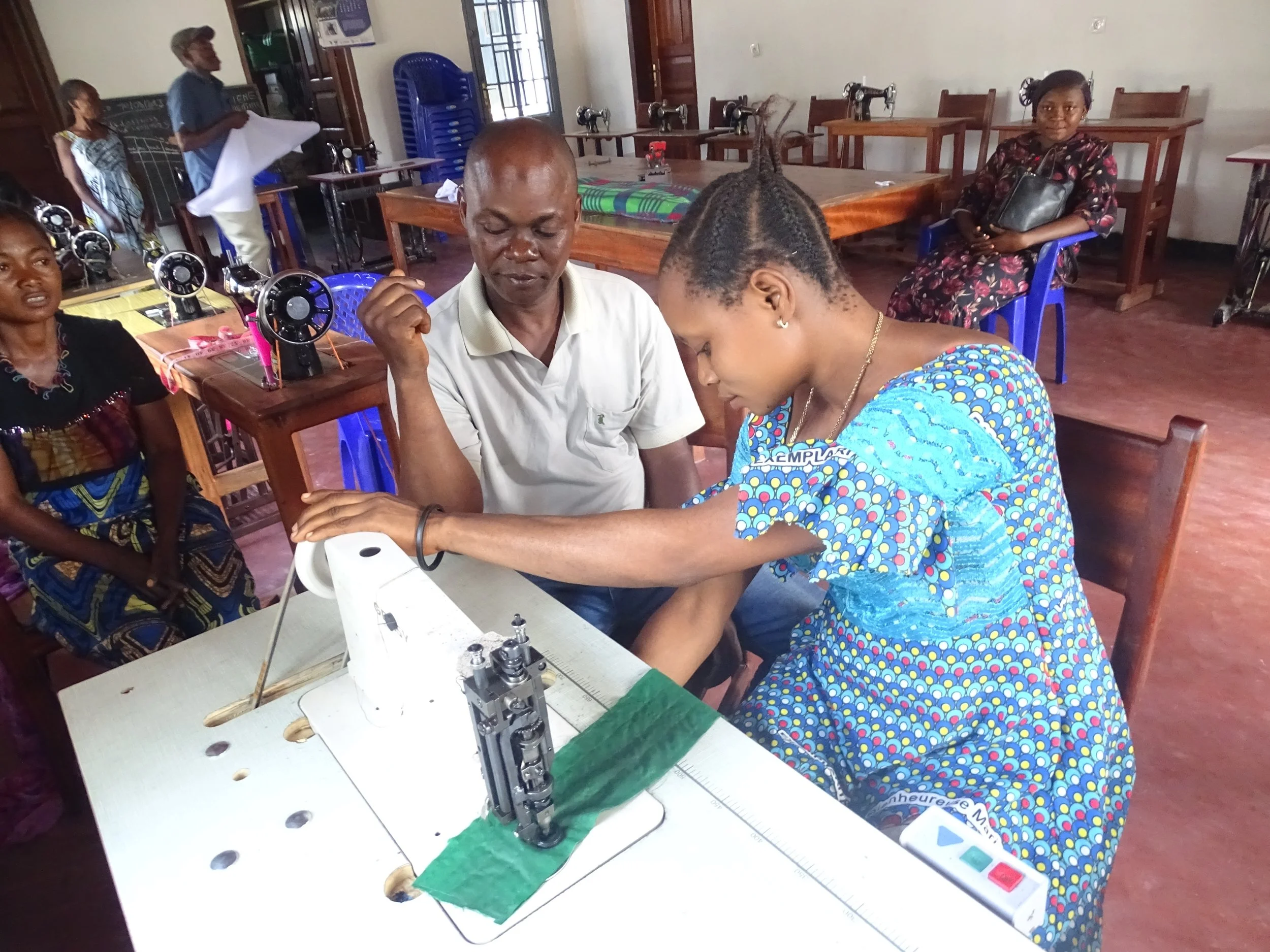Jungle Drums
An Update from our new Deputy Director, John Watkin
In January, I returned to Epulu, the headquarters of the Reserve de Faune à Okapi (RFO) for the first time in 21 years to meet with the Okapi Conservation Project’s education, agroforestry, health, and infrastructure teams to listen to their activities, experiences, impacts, and challenges.
These discussions have astounded me with the breadth of the work undertaken by this dedicated team. Not just in Epulu but through extension offices around RFO in Biakato, Mungbere, Mambasa, Nia Nia, and Wamba. The 13-strong agroforestry team engages over 500 households to improve agricultural practices, diversifying crops, improving resilience against climate change, and reducing pressure on the primary rainforest – the critical habitat for okapi.
One of the new triporteurs to transport tree seedlings to communities.
Experimental garden in Epulu.
The 11-person education team - through these same extension offices - reach 221 primary and 113 secondary schools raising awareness and educating the pupils of the importance of okapi, Congo’s national emblem.
One key product, produced for over a decade, has been the brightly colored RFO calendars. We distribute 3,000 copies to all schools, administrative offices, partners, and traditional leaders. Ingeniously, these calendars contain monthly environmental messages that form the basis of the environmental lessons taught in schools throughout the year. This year, in partnership with Wildlife Conservation Society, these messages are tailored to the indigenous Mbuti and Efe peoples that coexist with the forest.
Distributing the conservation calendars to schools in Wamba.
OCP educators distributing protected animal posters to indigenous Mbuti while discussing hunting regulations.
However, our best ambassadors are the 264 members of the women’s groups in all but one extension offices. These women benefit from training in producing high quality, vibrantly colored clothes, learning to knit, crochet, and small business management as well as learning about the importance of RFO for people and wildlife.
Epulu women’s group practicing sewing techniques.
John wearing an embroidered shirt made from Congolese pagne.
All of this is achieved in some of the most challenging road and transport conditions imaginable. To meet these conditions our talented infrastructure team is occupied to maintaining the battered vehicles and decrepit motorbikes as well as maintaining the orignal buildings constructed in 1950s.
Working in conservation requires playing the long game. After 37-years, OCP has achieved a considerable amount, but also navigated some truly arduous events. However, we remain true to our Mission: to conserve the okapi in the wild, while preserving the biological and cultural diversity of the Ituri forest.
Most of the OCP staff at the station in Epulu.







